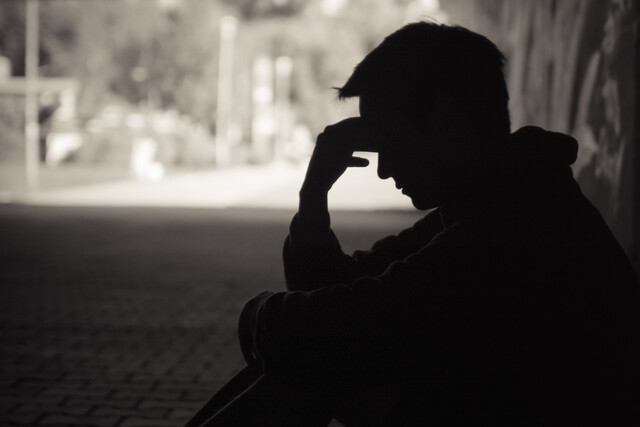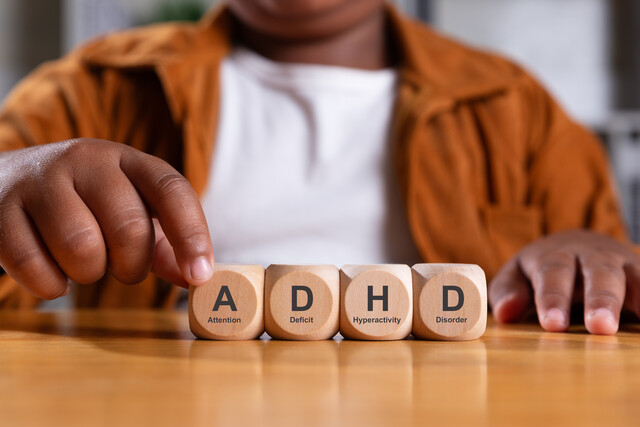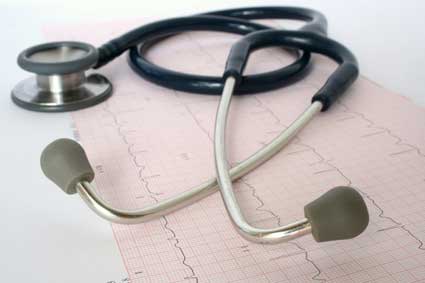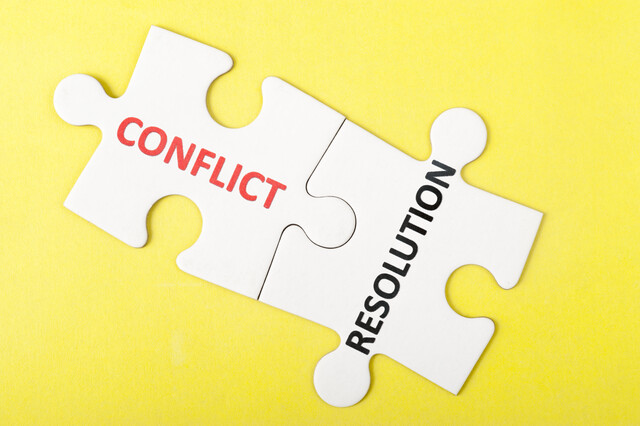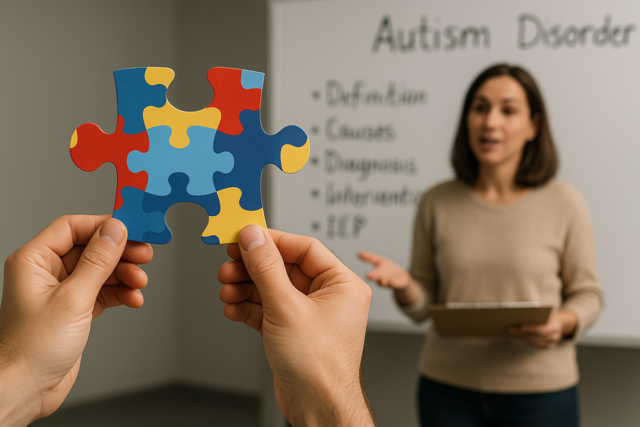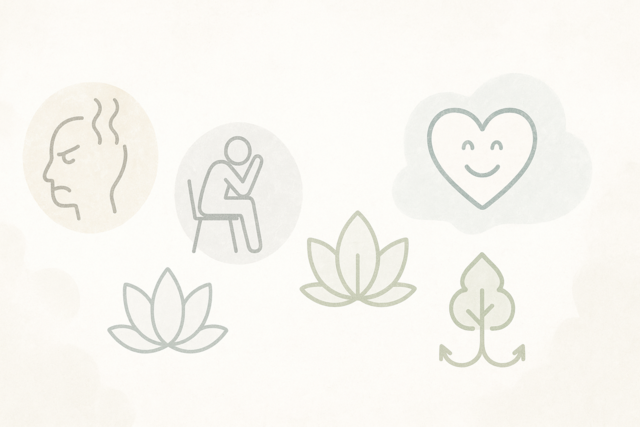Alcohol and drug abuse can sometimes be difficult to identify so that people often ask themselves, "Am I an addict?" Even though alcohol and drug abuse can be difficult to identify, there are signs and symptoms of the disease that can usually identify whether or not the addict is addicted to alcohol or drugs. There are differences between alcohol and drug abuse; however, they do have several symptoms in common.
All too often, alcoholics and addicts are unaware that they have a problem as they are unable to see the obvious signs and symptoms of the disease. They are usually in denial, hiding their use from their family and friends, choosing instead to keep their addiction a secret from those who care for them. While they think they are being secretive, the signs and symptoms of alcohol and drug abuse are often easy to recognize.
How does Addiction and Drug Use Develop?
Before getting into the signs and symptoms of addiction, let's see how addiction develops in the first place. Some common reasons why an individual becomes an addict include the following:
-
The drug fulfills the addict's needs. The addict may be self-medicating a mental illness. For example, they may begin to use prescription narcotics for some type of chronic pain or a benzodiazepine for chronic anxiety and begin to use these drugs--usually legally in the beginning. Without a way to control their use, the addict slips into an addiction and the drug and alcohol abuse becomes a problem. They turn self-medicating into an addiction even when their underlying health problem has resolved.
-
Drug use consumes the addict's thinking. Eventually, the use of alcohol or drugs can consume the addict's thinking and behavior. They cease being social and their cognitive development prevents them from seeing that they have a problem. This causes the addict to feel isolated, which is how they got into the problem in the first place.
-
Drug use takes hold of the addict's life. The addict may be frequently late to school or work or may miss important family gatherings because they are so wrapped up in their addiction. Social and family obligations become neglected in favor of using drugs or alcohol. The individual may have had a voluntary choice to use drugs in the beginning, but soon their addiction has become a psychological and physical problem.
-
Addiction can sneak up on the addict. As the alcohol and drug use begins to take precedence in the addict's life, the addiction becomes more of a priority and the addict cannot stop using. They change from using alcohol or drugs a few days per week to using these substances every day. Alcohol and drug use becomes increasingly important to them.
-
Alcohol and drug abuse may begin as a social phenomenon. Many times, the addict is encouraged to use drugs or alcohol in social situations, using only among acquaintances and friends. The addict may feel the desire to belong to a group so that it feels as though using the alcohol or drugs is normal and the only option available to them.
Signs and Symptoms of Alcohol and Drug Abuse
The signs and symptoms of alcohol abuse can be different from the signs and symptoms of drug use. The typical signs and symptoms of alcohol abuse include the following:
-
Drinking by oneself, early in the day, or secretively
-
Having a husky voice, bloody or black and tarry stools, chronic diarrhea, vomiting blood, or having broken blood vessels on the face. The skin may be flushed from alcohol use.
-
Having disagreeable symptoms when stopping alcohol, such as anxiety, nausea, insomnia or headache
-
Using alcohol as a means of relaxation, as a way to deal with stress, as a way to feel more cheerful, as a way to feel "normal, or as a way to get adequate sleep.
-
Having frequent arguments with friends or family members
-
Suffering from mood swings, depression, or irritability
-
Suffering from memory loss or temporary blackouts as a result of alcohol abuse
Signs and Symptoms of Drug Addiction
As mentioned, the signs and symptoms of alcohol addiction and drug addiction are different from one another. The following are signs and symptoms of drug abuse:
-
Ongoing use in spite of the negative consequences of drug use. Even though the drug use is causing problems in the addict's life, they continue to used drugs, unaware of the problems their use is causing in their relationships, their health and their job performance.
-
Withdrawal. As the effects of the drugs begin to wear off, the addict begins to feel withdrawal symptoms, such as nausea and vomiting, sweating, trembling or shakiness, feeling jumpy, and anxiety symptoms.
-
Increased tolerance. The addict's body adapts to a certain amount of the drug so that they need more and more of the drug to have the same effect.
-
Family history. The addict may have a family history of drug addiction that can influence the individual's chances of becoming an addict as well.
-
A change in appearance. The addict may begin to show outward signs of being addicted to drugs. They may appear disheveled, wear crumpled and unclean clothing, or fail to shower on a regular basis.
-
Resorting to secrecy. The addict may begin to hid the quantity of drugs they are taking or hide from their family members the activities they are doing when using drugs. They may have unexplained injuries or accidents that they won't share because their origin is in their drug use.
-
Relationship problems. Addicts are often known to act out against close friends and relatives, especially if their loved ones are challenging their drug use. This can lead to relationship problems and domestic violence.
-
Risk taking behavior. The addict may find themselves taking extreme risks in order to have access to their preferred drug. Using drugs may take precedence over the addict's own safety.
-
Neglecting personal responsibilities. The addict may find themselves spending less and less time on personal responsibilities and activities that they used to be able to stay on top of. They turn to drug use rather than spend time in improving their work productivity, in close relationships, in hobbies, in school activities, and in school performance. They may decide not to spend time with family and friends that are not users of drugs.
-
Lacking in control. The addict loses control over their drug use, finding themselves using drugs more frequently or taking more drugs because of an increased tolerance the drug. They may find themselves using drugs for a longer period of time than they had originally intended or spending more time on using drugs rather than participating in activities of daily living.
-
Isolation. The addict often isolates themselves from friends and loved ones in order to use drugs. They may begin to use drugs as a way to relax or escape from stress but soon use the drug because they are addicted. They may withdraw emotionally from others, instead choosing to use drugs in private.
-
Losing interest in hobbies. The addict often begins to replace hobbies they used to enjoy in favor of using drugs. They may stop seeing family members or friends, decrease their participation in their favorite hobbies, decrease socialization, decrease their interest in sports, or stop exercising, instead using drugs as their primary activity.
-
Mood swings. Addicts often undergo significant changes in their lifestyle, resulting in the development of mood swings. The person can become anxious, sweating, tiredness, irritability, or depression. These wide changes in mood are because of the drastic alterations to the mind and body brought on by their drug abuse.
-
Money problems. The addict may begin to have problems managing their money and may be unable to pay the rent or other bills. This is especially true of addicts who are addicted to the more expensive drugs, such as prescription painkillers. They may begin to ask friends and family members to borrow them some money or may resort to criminal activities to support their drug habit. Drug use can be an extremely expensive habit, particularly if the addict uses costly drugs on a regular basis. They may deplete funds from 401(k) plans or Roth IRA accounts in order to have enough money to abuse their drug of choice. While the addict may have difficulty paying for groceries, rent, clothing, or bills, they generally have stashes of money in the house used instead to pay for drugs. They may begin to fail their money obligations, such as paying the mortgage or rent late or fail to pay their bills altogether.
-
Deceitfulness. The addict may lie about their use of drugs and may steal from others in order to support their habit. They hide their addiction from friends and family members, instead preferring to use drugs in private so no one knows what they are up to. They may deny their drug use when confronted by loved ones. In fact, many are denying their drug use to themselves.
-
Bloodshot eyes or dilated pupils. Depending on the drug the addict is using, there may be physical symptoms that can be obvious if the loved one knows what they are looking for. Some of the physical symptoms can be subtle and vary, depending on the drug being used.
-
Stealing from loved ones. The addict often thinks of just one thing and that is how to get their next "fix". When they run out of their own financial resources, many resort to pilfering money from friends and family. They can take money from the loved one's wallet or purse, or may find a way to get access to the loved one's bank account and steal money from that account.
-
Unexplained absences from home. As the addict is often using in secret, they may choose to escape from their home environment, instead choosing to used their drug of choice away from the prying eyes of friends and family members. They may take off and leave at unpredictable times and may miss school and work activities--either to use drugs or because they are hiding the effect the drug is having on them. They may also stay away from the home because they are trying to hide withdrawal symptoms.
-
Borrowing from friends or family members. As difficulties in finances are usually the norm for addicts, they may resort to borrowing from family members or friends. They may lie about what the money is for and tell their loved ones that the money is for an emergency or that it is to pay the rent when, in actuality, the money is being used to purchase drugs.
-
Neglecting responsibilities. The addict may begin to fail in school or fail to keep up with work deadlines. They may neglect their children in lieu of using drugs, and may skip work or school activities in favor of using drugs instead.
-
Using drugs in risky situations. The addict may resort to using dirty needles, putting them at risk for hepatitis B, hepatitis C, or HIV. They may choose to drink and drive, and may have several DUIs or DWIs as a result. They may have unprotected sex while under the influence of drugs.
-
Having legal problems. The addict may have a legal history, such as having a DUI or DWI, arrests for disturbing the peace, or arrests after being caught for theft perpetrated because of a need to have money in order to pay for drugs.
-
Having a drug tolerance. The addict may find themselves requiring more and more of the drug in order to have the same effect. This is because the brain adapts to the drug by altering the production of neurotransmitters so that more drug is needed to affect these neurotransmitters.
-
Having withdrawal symptoms. A classic finding in drug abuse is having cravings or withdrawal symptoms when not using the drugs. Common withdrawal symptoms include anxiety, shakiness, sweating, depression, insomnia, restlessness and nausea, although the exact withdrawal symptoms the addict has depends on their drug of choice.
-
Having a lack of control over drug use. The addict may find themselves using drugs when they hadn't planned to or using more often than expected. The addict may want to stop using drugs but cannot physically or mentally do this. They may use even when they tell themselves not to use drugs as they are having withdrawal symptoms or cravings for the drugs.
-
Having a life that revolves around drug use. The addict may find themselves spending more time thinking about drugs, trying to find out how to get more drugs, using drugs, or suffering from the effects of withdrawal from their drug of choice.
-
They continue to use drugs even when they know it is harming them. Drug use is not all about cognitively knowing that drugs are bad for you. The addict likely knows the harm they are causing themselves and still continue to use the drug. There may be significant problems in the addict's life but the drug use becomes more of a priority than their health.
-
Hiding drugs. The addict may have stashes all around their home or workplace so they always have a ready supply of the drug when they need to use them. They may slip into the restroom in order to uncover their cache of drugs and use them in secret.
-
Having absences from work or school. Because of active drug use or the presence of withdrawal symptoms (or just plain apathy), the individual may find themselves missing work or school, wasting precious time on using drugs or recovering from its effects.
-
Having emotional ups and downs. The addict may be stressed out about their drug use or may be stressed because of withdrawal symptoms or from worrying about getting more of the drug and this can manifest itself in being irrational, with emotional swings in thoughts and behavior.
-
Avoiding situations that are non-drug related. The addict may be so worried about withdrawal symptoms or worried about others noticing their drug use so that they avoid situations where their drug use will be frowned upon. They may instead choose to be with friends or loved ones that support their drug use, are addicts themselves, or won't notice the addict's drug use.
This isn't a thorough list of the signs and symptoms of drug addiction but will give you an idea as to whether or not you are an addict. Your addiction may manifest itself in any of the above signs and symptoms but it may be to varying degrees. It is rare, however, for an addict to have no signs or symptoms of drug or alcohol abuse.
If you see yourself in any one of the above signs and symptoms, this is the time to get help from professionals or even family members/friends as there can be things that can be done in order to help you overcome your addiction, and return to a normal and productive life.








